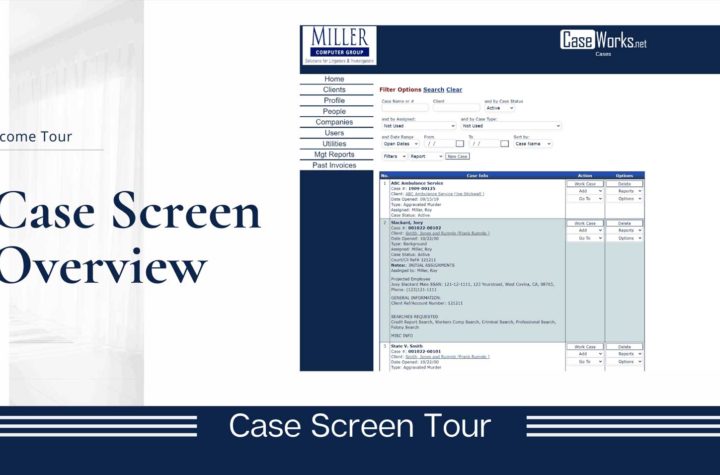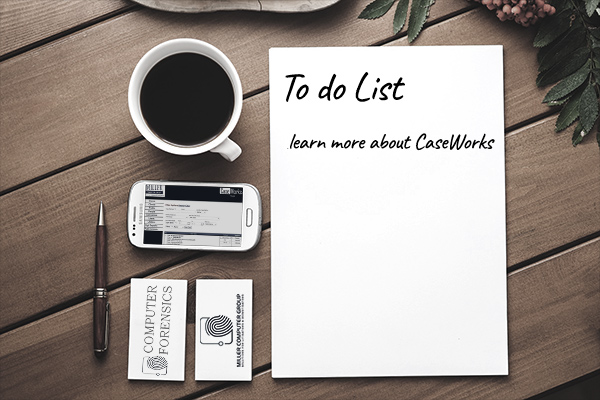
True success – – in a relationship, in life, in business – – comes from sustained efforts which evenly provide benefits to both parties. Even a handful of these relationships can spell the enormous difference between survival and failure, growth and stagnation, success and poverty. Give and take. Win-win situations. Developing a core of long-term clients. You get the idea. But private investigators often fall into a panic mode. Business is good, so they spend no time on marketing. Business is suddenly bad, and they decide to go after everyone. In my eyes, that’s not necessarily the road to success. You must control the process, and that means creating a playbook and sticking to a plan. Than plan must include a core of long-term clients who can provide stability to your business.
So, how do you decide who is a good fit to become a long-term client?
Basically, there are three criteria to consider. Let’s look at each.
First, each party needs to understands the benefit supplied by the other. In fact, you can use the old term of a mutual admiration society. It needs to be that strong. Your client must realize that the information/services you provide are something that he cannot get anywhere else. You must know that you can meet the needs of your client, thoroughly and consistently. You both must recognize the factors in this equation. If there is not respect on both sides of the coin, one of you will fall on your face (or your tail). Either way, it won’t be a pleasant sight.
Secondly, beyond the scope of services provided, there needs to be a personality fit. You have to look beyond the mechanics of the task and see if you are actually ready to work together. Do you actually enjoy each other’s company? Do you feed off each other, find each other mentally stimulating? Or do you find that simply being around this person makes the hair on the back of your scalp stand up? If that happens, then head for the hills. It’s best that you recognize this right away. Recently in my business, I found a client who had the kind of high visibility I wanted to benefit from. Making it even better, we got along. So I presented an agreement to him for a longer term relationship, and he made some corrections to it and sent it back to me. What he actually did was tighten the contract, making it better for both of us. That’s respect, and that’s the kind of situation you want with a long-term client.
The third criteria that needs to be met for a truly successful long-term client relationship may seem harsh and mercenary, but what it really is is honest and sensible. Namely, you need to know if your client has the money to make the relationship work. If the bill for your services is $4,000, how long does it take them to pay the bill? If they pay it quickly, within your established norms, then they value you and your work. If they stall and offer excuses, then they may have failed your third criteria, and you may want to be careful about trying to build this person into a long-term client.
Having said that, you should give the client a chance to address the payment issue the first time. For example, maybe your relationship with the client is superb, but your client has an occasional problem with his billing department. And if your client is the government, slow payment of invoices may be the norm. (Not good, mind you, but reflective of how they do business with everyone.) So, give them a chance, but don’t give them the farm.
Essential cultivation
How do you develop a long-term client? With key, unbreakable principles. The simplest and most powerful is: if they have a problem, you fix it. If they need you, you respond. If you can’t fix the problem, if you can’t handle the case, you tell them right from the start. You have to be very open and honest, and both of you need to recognize that your word is your bond.
Another key – – and this is the ultimate key – – is never give a long-term client a price break. Through your mutual respect and positive relationship, your potential long-term client must understand that you already charge fairly, and they are willing to pay it because they know that you will deliver the goods. And get this: extras are extra. If you have a rush project for them, you charge an appropriate extra fee, and they expect that. A man is worth his wages.This concept often flies in the face of how most investigators think business should be done. They think you should always be offering a discount to steady clients, and throw in extra work for free. But that is not the right state of mind. The bottom line is that it is incredibly honest and fair and just to treat people the way you need to in order to make your business survive.
The natural tendency is to be everybody’s friend, but you can’t be afraid to say, “Show me the money.” And if the money is not there, you literally must be able to be bold enough to walk out the door.None of this is to suggest that you should be arrogant. But you have to go for the kill, go for the next client, and work to grow your business. I believe in what I do, and I don’t do it just for the money. Slow, prodding and calculated wins the race. You need to think three years from now, not just how you are going to get through the next month.
The issue is to be openly honest – – say what you mean and mean what you say – – and establish that healthy rapport. By establishing firm guidelines about how you do business, and then delivering the goods when called upon, you become a proven entity, the go-to guy. You realize that you’ve got the client because of you. Your attention to detail, your work to always prove yourself, shows your knowledge of your client, which only serves to deepen that essential relationship. Be a resource, not an employee, so you can acquire other clients, and so that they want to work with you.
Finally, I suggest that having 40% of your business from long-term clients is a healthy percentage. This gives you a solid base of work and a steady income, but also gives you room to expand and grow your business. And you have to do that, because you can’t have all of your eggs in one basket. You can’t get all of your work from one client, because then if you lose that client, and have not been doing anything to attract new ones and build your business, you are stuck big time.
So be honest, fair, service-oriented and attentive to your long-term clients. The mutual positive relationship will help your business grow, and you will be happier because of it.




